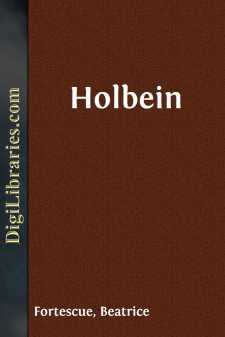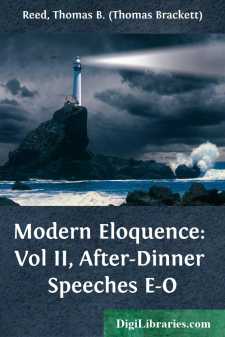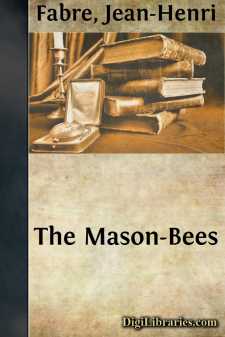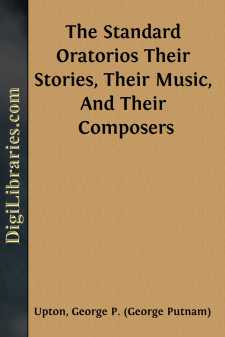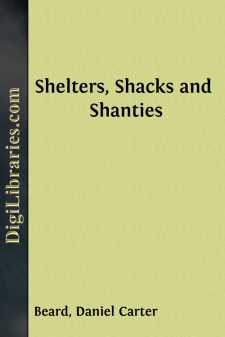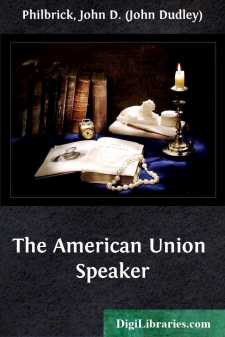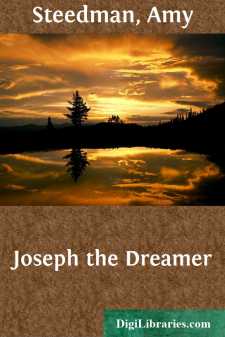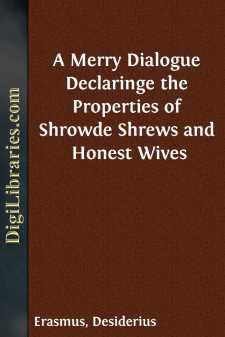Non-Classifiable
- Non-Classifiable 1768
Non-Classifiable Books
Sort by:
CHAPTER I HOLBEIN'S PERIOD, PARENTAGE, ANDEARLY WORKHistorical epoch and antecedents—Special conditions and character of early Christian art—Ideals and influence of the monk—Holbein's relation to mediæval schools—His father, uncle, and Augsburg home—Probable dates for his birth and his father's death—Troubles and dispersion of the Augsburg household—From Augsburg to...
more...
GEORGE CARY EGGLESTON SOUTHERN LITERATURE [Speech of George Cary Eggleston at the first annual banquet of the New York Southern Society, February 22, 1887. Algernon Sidney Sullivan, President of the Society, was in the chair. In introducing the speaker Mr. Sullivan said: "We want to hear a word about 'Southern Literature,' and we will now call upon Mr. George Cary Eggleston to respond to...
more...
by:
Jean-Henri Fabre
CHAPTER 1. THE MASON-BEES. Reaumur (Rene Antoine Ferchault de Reaumur (1683-1757), inventor of the Reaumur thermometer and author of "Memoires pour servir a l'histoire naturelle des insectes."—Translator's Note.) devoted one of his papers to the story of the Chalicodoma of the Walls, whom he calls the Mason-bee. I propose to go on with the story, to complete it and especially to...
more...
THE ORATORIO. The oratorio in its modern form is a musical setting of a sacred story or text in a style more or less dramatic. Its various parts are assigned to the four solo voices and to single or double chorus, with accompaniment of full orchestra, sometimes amplified by the organ. Like the opera, it has its recitative, linking together and leading up to the various numbers. The origin of the word...
more...
FOREWORD As this book is written for boys of all ages, it has been divided under two general heads, "The Tomahawk Camps" and "The Axe Camps," that is, camps which may be built with no tool but a hatchet, and camps that will need the aid of an axe. The smallest boys can build some of the simple shelters and the older boys can build the more difficult ones. The reader may, if he likes,...
more...
The design of this book is twofold,—to meet the present demand for new selections suited to the spirit of the hour, and also to furnish a choice collection of standard pieces for elocutionary exercises on which time has set its lasting seal. In the execution of this design no pains have been spared in selecting and preparing the best pieces, both new and old. The extracts from recent productions,...
more...
by:
Henry Bursill
PREFACE I need not explain how these Shadows were suggested, to any one who has seen WILKIE'S picture, "The Rabbit on the Wall." But by what pains they were invented can never be revealed; for it is known to my tortured digits alone, and they, luckily for me, are dumb. I calculate that I put my ten fingers through hundreds of various exercises before my "Bird" took wing; my left...
more...
by:
Amy Steedman
The Story of Joseph This is the story of Joseph, the boy who had the strangest and most exciting adventures of any boy who ever lived. Joseph was but a little lad when his mother died. His father, Jacob, had loved that mother more than any one else in the world, so that when she died leaving Joseph and a baby brother, Benjamin, all the love in the father's heart turned to his two little sons. The...
more...
Eulalia. God spede, & a thousand mine old acqueintÐâÐÐce. xantippa. xan. As many agayn, my dere hert. Eulalia. me semets ye ar warÐâвÐÑ much faire now of late. Eula. Saye you so? gyue you me a mocke at the first dash. xan. Nay veryly but I take you so. Eula. Happely mi new gown maketh me to loke fayrer then I sholde doe. xan. Sothe you saye, I haue not sene a mynioner...
more...
CERTAIN PERSONAL MATTERS THOUGHTS ON CHEAPNESS AND MY AUNT CHARLOTTE The world mends. In my younger days people believed in mahogany; some of my readers will remember it—a heavy, shining substance, having a singularly close resemblance to raw liver, exceedingly heavy to move, and esteemed on one or other count the noblest of all woods. Such of us as were very poor and had no mahogany pretended to...
more...


